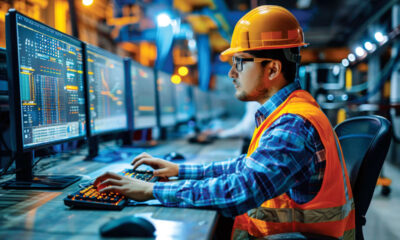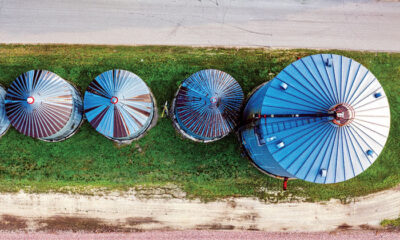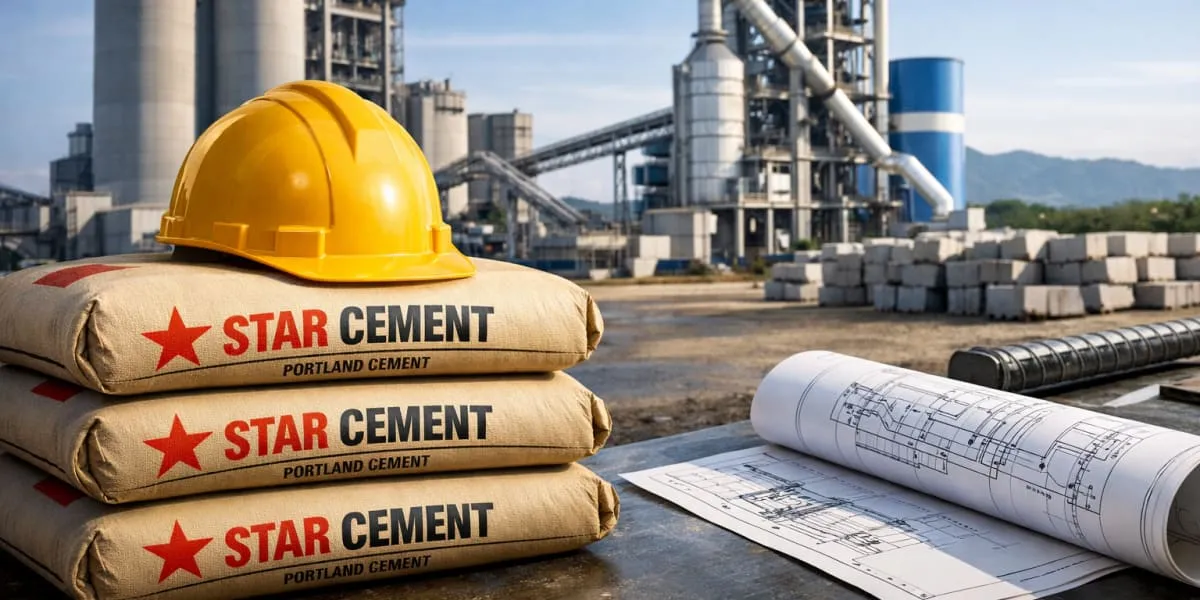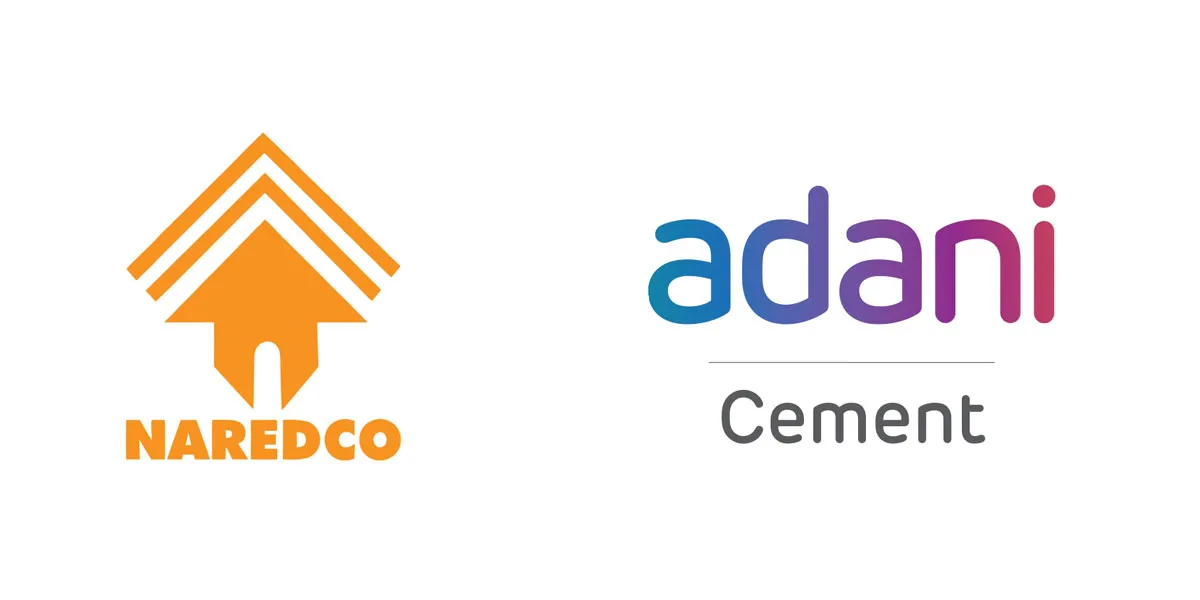Nischal Mehrotra, Vice President, Sales & Marketing LiuGong India, discusses the role of advanced engineering technology in developing efficient equipment for the cement industry.
Tell us about the equipment used at limestone quarries and coal mines that majorly supply to cement plants?
The equipment used in limestone quarries and coal mines can vary depending on the type of mining operation and the specific needs of the cement plant. However, some common types of equipment used in these industries include:
- Drilling equipment: This includes drill rigs and drilling machines that are used to create holes in the ground to extract the limestone or coal.
- Excavators: These are heavy-duty machines used to remove large amounts of soil, rock, and other materials from the ground.
- Loaders: These are used to move materials, such as limestone and coal, from the ground to trucks or conveyors for transport to the cement plant.
- Crushers: These are machines that break down large rocks into smaller pieces for easier transport and processing.
- Conveyors: These are used to transport materials from one location to another, such as from the quarry or mine to the cement plant.
- Bulldozers: These are used to level and shape the ground for mining operations and to move large quantities of material.
- Blasting equipment: This is used to break up rock formations in the quarry or mine to make it easier to extract the limestone or coal.
- Haul trucks: These are used to transport materials from the quarry or mine to the cement plant.
The equipment used in limestone quarries and coal mines that supply to cement plants can be quite diverse, but these are some common types that you might find in these industries.
What is the USP of your equipment that makes them the choice for operation by
any contractor?
The company provides a range of construction equipment and machinery for various applications, such as earthmoving, mining, road construction, and material handling. Here are some USPs of Liugong India machinery that make them a preferred choice for contractors:
- Quality and reliability: Liugong India machinery is known for its quality and reliability. The company uses advanced technology and high-quality materials to manufacture its machines, ensuring they are durable and able to withstand tough working conditions.
- Fuel efficiency: Liugong India machinery is designed to be fuel-efficient, which helps contractors save money on fuel costs. This is achieved through advanced engine technology and optimised machine design.
- Versatility: Liugong India machinery is versatile and can be used for various applications, such as earthmoving, mining, and material handling. This makes it a preferred choice for contractors who need equipment that can perform
- multiple tasks.
- Low maintenance: Liugong India machinery is designed to require minimal maintenance, which helps reduce downtime and maintenance costs. The company also offers excellent after-sales support to ensure the machines are always in top condition.
- Operator comfort and safety: Liugong India machinery is designed with operator comfort and safety in mind. The cabs are spacious and ergonomic, providing a comfortable working environment for the operator. The machines are also equipped with advanced safety features to prevent accidents and ensure operator safety.
Liugong India machinery is a preferred choice for contractors due to its quality, reliability, fuel efficiency, versatility, low maintenance, and operator comfort and safety.
How do you achieve cost efficiency and profitability in your operations?
Liugong India can achieve cost efficiency and profitability in its operations by focusing on the following strategies:
- Manufacturing efficiency: Liugong India can focus on optimising its manufacturing processes to reduce costs and improve efficiency. This can be achieved through automation, lean manufacturing principles, and other process improvement strategies.
- Supply chain management: Effective supply chain management can help Liugong India reduce costs and improve profitability. This can include optimising logistics, sourcing raw materials at competitive prices, and managing inventory levels.
- After-sales support: Providing excellent after-sales support can help Liugong India improve customer satisfaction and retention. This can lead to repeat business and positive word-of-mouth recommendations, which can ultimately help improve profitability.
- Product innovation: Liugong India can focus on developing innovative products that meet the changing needs of its customers. This can help the company differentiate itself from competitors and capture market share, leading to improved profitability.
- Strategic partnerships: Liugong India can form strategic partnerships with other companies to improve its operations. For example, partnering with a logistics company can help reduce transportation costs, while partnering with a technology company can help improve manufacturing processes.
By focusing on these strategies, Liugong India can achieve cost efficiency and profitability in its operations. This will help the company remain competitive in the market and continue to grow its business.
What is the role of technology in achieving efficiency in your operations?
Technology plays a critical role in helping Liugong India achieve efficiency in its operations. Here are some examples of how technology is used by Liugong India to achieve efficiency:
- Advanced engineering: Liugong India uses advanced engineering technology to design and manufacture its machines. This includes computer-aided design (CAD) software and simulations that allow engineers to optimise machine performance and reduce the need for physical prototyping.
- Telematics: Liugong India machines are equipped with telematics systems that allow for remote monitoring and diagnostics. This helps to identify and address issues quickly, reducing downtime and improving machine performance.
- Automation: Liugong India uses automation technology to improve manufacturing efficiency and reduce costs. For example, robots can be used for welding, painting, and other repetitive tasks, reducing the need for manual labor.
- Fuel efficiency: Liugong India machines are designed with fuel-efficient engines and other features that help reduce fuel consumption. This not only saves money on fuel costs but also reduces the environmental impact of the machines.
- Connectivity: Liugong India machines can be connected to the internet, allowing for real-time data sharing and analysis. This can help optimise machine performance, reduce downtime, and improve overall efficiency.
Technology plays a crucial role in helping Liugong India achieve efficiency in its operations. By leveraging advanced engineering, telematics, automation, fuel efficiency, and connectivity.
How do you ensure the delivery of quality product post mining or quarrying?
Liugong India ensures the delivery of quality products post-mining or quarrying by implementing the following measures:
- Quality control: Liugong India implements rigorous quality control measures at every stage of the manufacturing process. This includes using high-quality materials, testing components before assembly, and conducting final inspections before the machines are shipped.
- After-sales support: Liugong India provides excellent after-sales support to ensure its machines are always in top condition. This includes regular maintenance, repairs, and replacements of parts as needed.
- Training and education: Liugong India provides training and education to its customers to
- ensure they are able to operate the machines safely and effectively. This includes operator training, maintenance training, and troubleshooting support.
- Customer feedback: Liugong India actively seeks feedback from its customers to identify areas for improvement and ensure that its machines meet their needs. This feedback is used to improve the design and functionality of the machines.
- Warranty: Liugong India provides a warranty on its machines to ensure customers have peace of mind and are protected against manufacturing defects.
By implementing these measures, Liugong India ensures the delivery of quality products post-mining or quarrying. This helps to build trust with its customers and improve its reputation in the market.
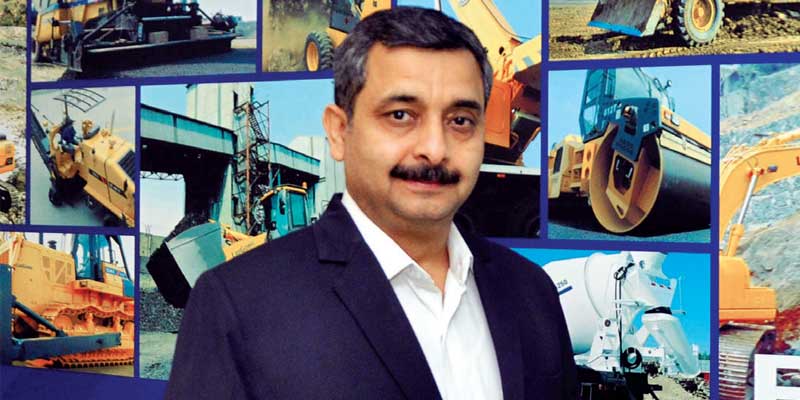

 Economy & Market4 weeks ago
Economy & Market4 weeks ago
 Economy & Market4 weeks ago
Economy & Market4 weeks ago
 Concrete1 month ago
Concrete1 month ago
 Concrete2 weeks ago
Concrete2 weeks ago


